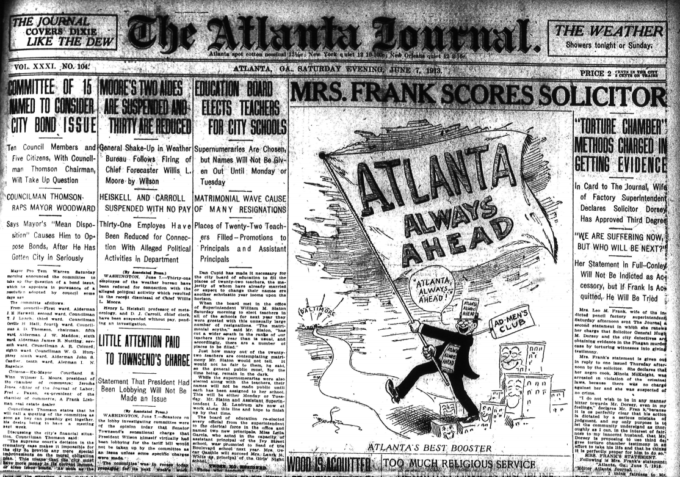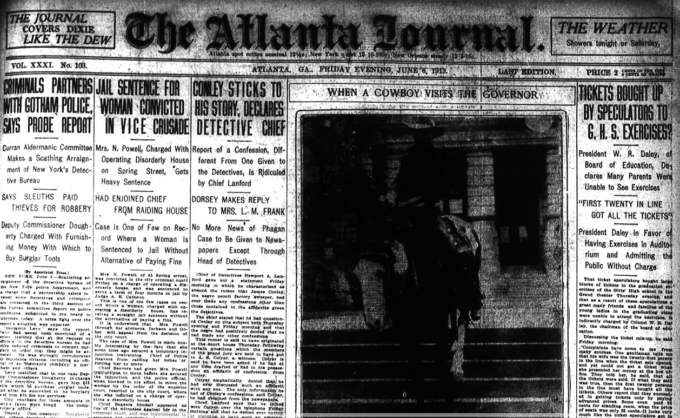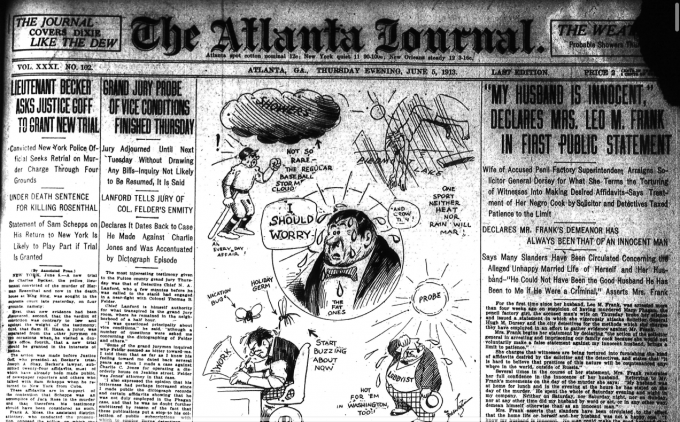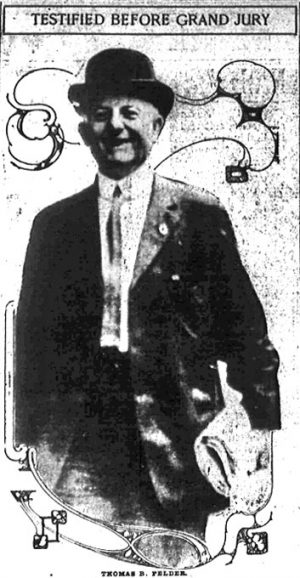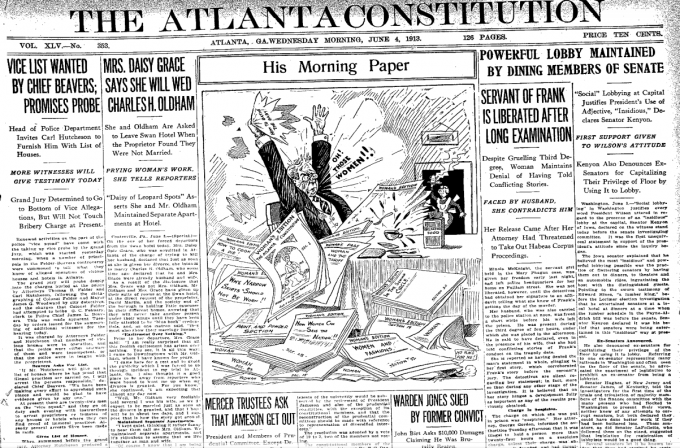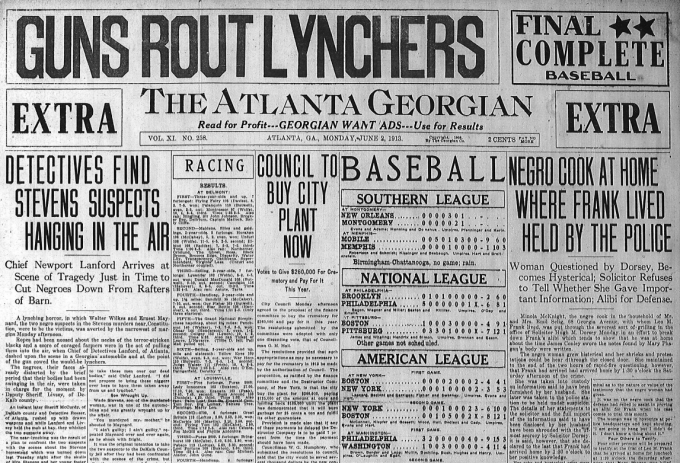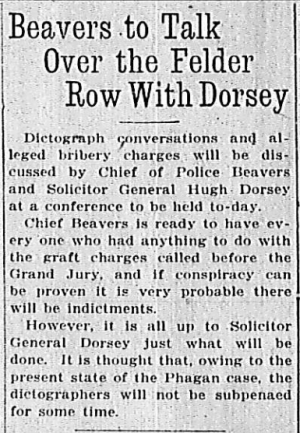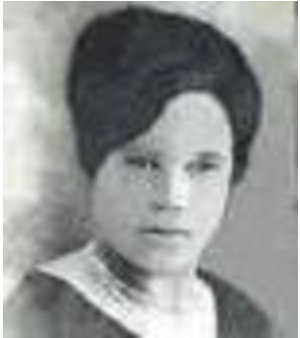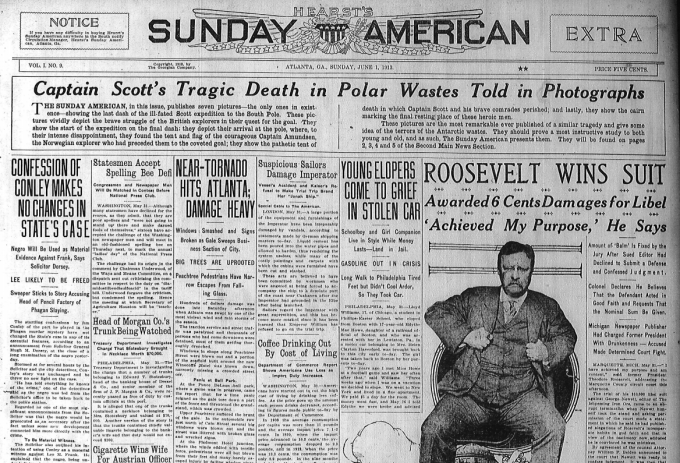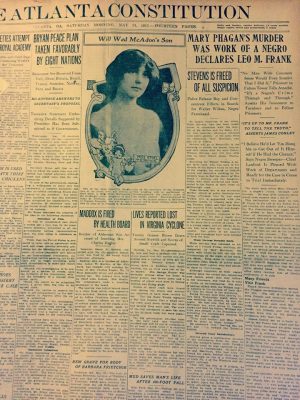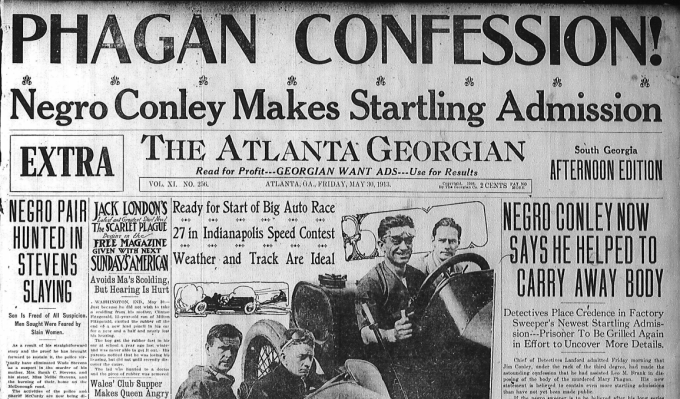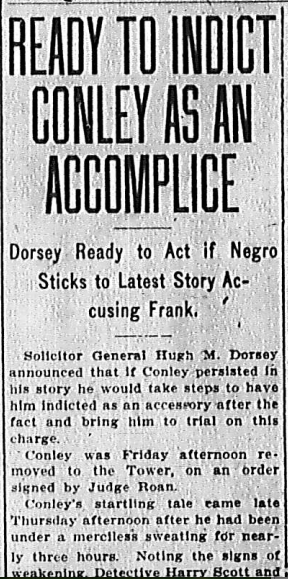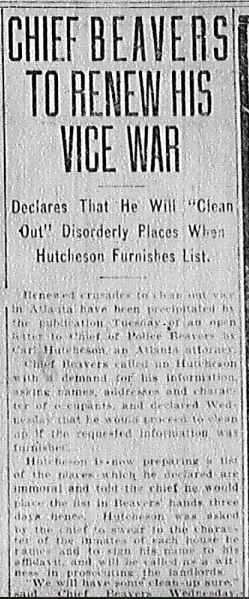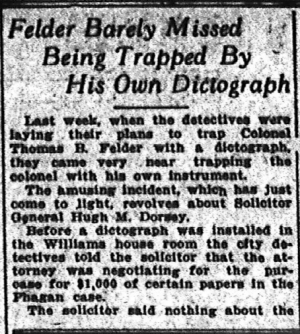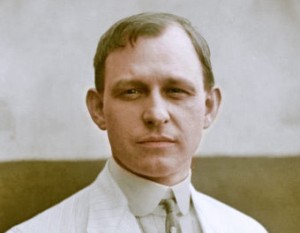Another in our series of new transcriptions of contemporary articles on the Leo Frank case.
Atlanta Journal
Saturday, June 7th, 1913
In Card to The Journal, Wife of Factory Superintendent Declares Solicitor Dorsey Has Approved Third Degree
“WE ARE SUFFERING NOW, BUT WHO WILL BE NEXT?”
Her Statement in Full—Conley Will Not Be Indicted as Accessory, but if Frank is Acquitted, He Will Be Tried
Mrs. Leo M. Frank, wife of the indicted pencil factory superintendent, Saturday afternoon sent The Journal a second statement in which she renews her charge that Solicitor General Hugh M. Dorsey and the city detectives are obtaining evidence in the Phagan murder case by torturing witnesses into giving testimony.
Mrs. Frank’s statement is given out in reply to one issued Thursday afternoon by the solicitor. She declares that her negro cook, Minola McKnight, was arrested in violation of the criminal laws, because there was no charge against her and she was suspected of no crime.
“I do not wish to be in any manner bitter towards Mr. Dorsey, even in my feelings,” declares Mr[s]. Frank, “because it is [m]os[t] perfectly clear that his action is dictated by a serious mistake of judgment, and my only purpose is to let the community understand as thoroughly as I can, in the interest of fairness to my innocent husband, that Mr. Dorsey is proposing to use third degree torture chamber testimony in an effort to take his life and that he thinks it is perfectly proper for him to do so.”
MRS. FRANK’S STATEMENT.
Following is Mrs. Frank’s statement: Continue Reading →

